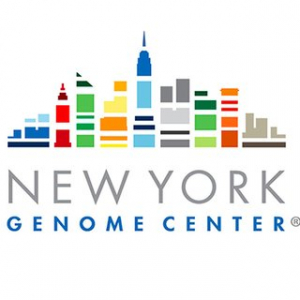Job Description
The Satija lab at the New York Genome Center is looking for an enthusiastic and highly motivated senior computational biologist. We encourage applications from talented scientists who are interested in gaining experience in a multidisciplinary, international, and dynamic research environment. The successful candidate will supervise and work closely to PhD students, postdoctoral fellows, and computational biologists in the lab to develop new statistical methods and software for the analysis of single cell datasets. This is an exciting opportunity to learn about the latest developments in the growing space of single cell genomics while contributing to new research in cancer immunology and developmental neuroscience.
Job duties will include:
Develop computational methods to analyze single-cell genomics datasets;
Contribute to the codebase, development, and support of open-source software packages;
Assist in data analysis and interpretation for diverse research projects;
Help to manage lab servers and computational infrastructure; and,
Document and present results in written or oral reports to other lab members.
Required Experience
PhD or MS degree in bioinformatics, computer science, biology, biochemistry or similar;
Excellent programming skills, for example, in R, Python, and BASH;
Experience working in a Linux environment;
Team oriented with excellent written and verbal communication skills;
Training in statistics or machine learning preferred;
Exposure or training in NGS data analysis, functional genomics and/or human genetics preferred.
Salary
The salary range for this position is $100,000-120,000 per year. Base pay offered may vary depending on job-related knowledge, skills, and experience. In addition, NYGC offers a full range of medical, financial, and other benefits as well as generous time off.
Competencies
Technical and Professional Skills: Consistently demonstrates skills and knowledge relevant for current role; strives to expand the depth and breadth of technical and professional skills; works with a high level of integrity; exhibits focus and discipline; appropriately prioritizes, manages expectations and delivers on commitments.
Collaborative & Communicative: Models collaboration and teamwork; brings out the best in others; effectively works with all levels, internally and externally; respects and embraces diversity of perspective; communicates clearly and listens carefully; uses good judgment as to what to communicate and when to do so.
Adaptable & Innovative: Adaptable and embraces change; develops new insights and pursues improvements and efficiency; fosters exchange of new ideas and willing to challenge the status quo; takes initiative and is solution-oriented; engages in work with passion and curiosity.
New York Genome Center
New York, New York
The New York Genome Center (NYGC) is an independent, nonprofit academic research institution focused on furthering genomic research that leads to scientific advances and new insights and therapies for patients with neurodegenerative disease, neuropsychiatric disease, and cancer. Leveraging our strengths in whole genome sequencing, genomic analysis, and development of genomic tools, the NYGC serves as a nexus for collaboration in genomic research for the New York community and beyond.
The NYGC harnesses the expertise and builds on the combined strengths of our faculty, member institutions, scientific working groups, affiliate members, and industry partners to advance genomic discovery. Central to our scientific mission is an outstanding faculty who are leading independent research labs based at the NYGC and jointly with one of our member institutions, bringing a multidisciplinary and in-depth approach to the field of genomics.
The NYGC has attracted leading scientists whose wide-ranging expertise — including single cell genomics, genome engineering, population genomics, statistical genetics, computational biology and bioengineering —brings a multidisciplinary and in-depth approach to the field of genomics. NYGC senior and core faculty members, who hold joint appointments at leading New York institutions, include a Nobel Laureate, three Lasker award winners and five members of the National Academy of Sciences. Since its inception, NYGC researchers have published more than 200 research studies in leading, high-impact scientific journals.
-
IndustryNonProfit
-
No. of Employees50 - 250
-
Website
-
Jobs Posted41


